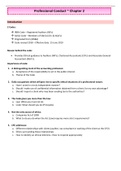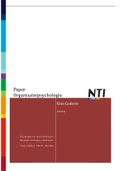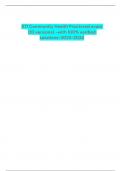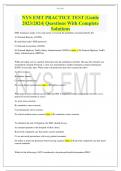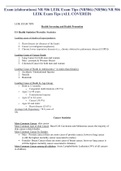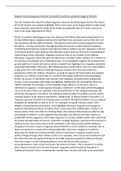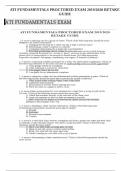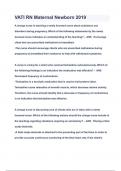Samenvatting
Summary Auditing Notes for South African Students - Code of Professional Conduct/CPC. (EACG2708)
- Vak
- Instelling
- Boek
Notes of a second year student studying Bachelors of Accounting at the University of the Free State. With this notes that i have compiled, i was able to proudly say that i received a distinction in Auditing by using this notes. If you are struggling with Auditing use this notes, and you could also ...
[Meer zien]
